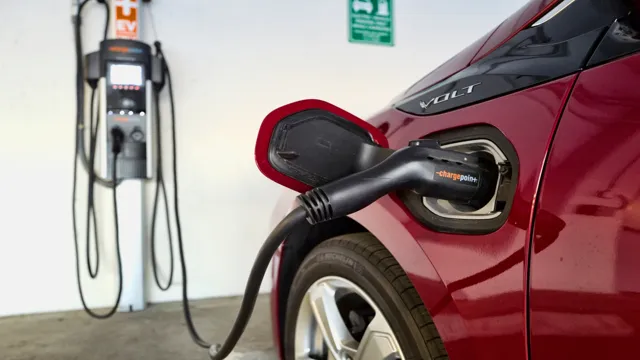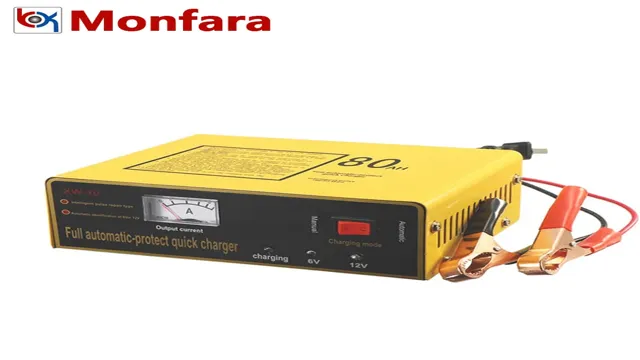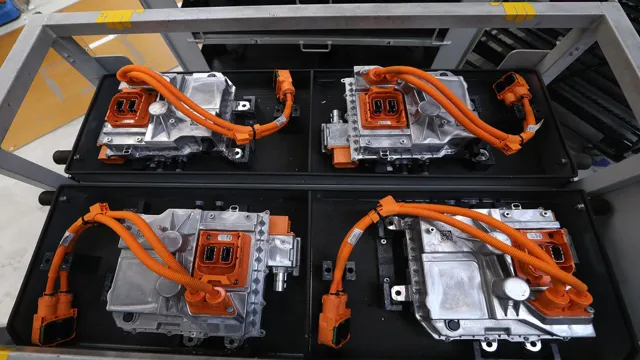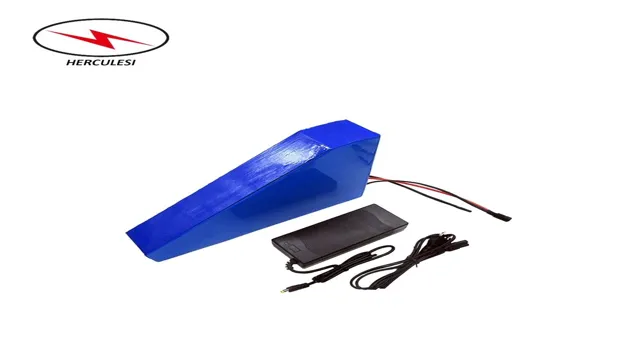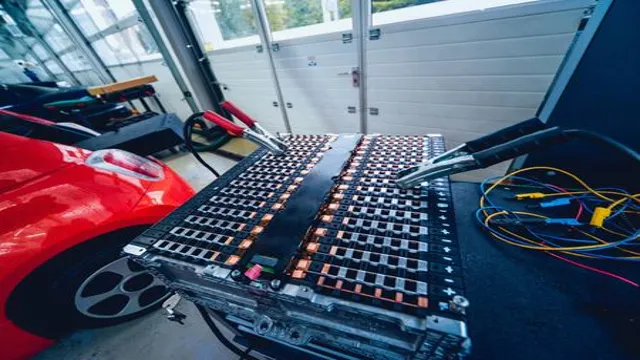Chilly Consequences: How Does Cold Weather Affect Electric Car Batteries?
When it comes to electric cars, there’s often a debate over how they perform in cold weather conditions. While they’re known for being eco-friendly and economical, electric car batteries can take a hit in colder temperatures, affecting performance and range. But why is this the case? And what can be done to combat the issue so that electric car owners can enjoy their rides regardless of the weather? In this blog, we’ll explore the relationship between electric car batteries and cold weather, examining why the two don’t always go hand in hand.
We’ll delve into the science behind how cold weather affects battery performance, including slower charging times and diminished range. Moreover, we’ll also discuss some practical tips that electric car owners can use to mitigate the effects of cold weather on their vehicles, such as preheating the battery and cabin before driving. Whether you’re a current electric car owner or considering making the switch, understanding how cold weather affects batteries is crucial.
Join us on this journey as we uncover everything you need to know to make the most of your electric car, even in the coldest of temperatures.
Effects of Cold Weather on Electric Car Batteries
If you own an electric car, you may be wondering if it will perform well in the cold weather. The short answer is that electric car batteries are affected by freezing temperatures. When the temperature drops below freezing, the chemical reactions within the battery begin to slow down, which can reduce the car’s range.
Additionally, the cold weather can put additional strain on the battery, which can cause it to degrade faster over time. However, there are ways to mitigate these effects. For example, you can park your car in a garage or covered area to keep it out of the cold.
You can also preheat the car before driving, which can warm up the battery and improve its performance. Lastly, you can invest in a battery heater, which can help keep the battery warm in cold weather. Despite the challenges of cold weather, with a little preparation, electric car owners can continue to enjoy their vehicles throughout the winter months.
Reduced Range
Cold weather can have a significant impact on the range of electric car batteries, reducing their capacity and requiring more frequent charging. This is because the chemical reactions that occur within the battery are less efficient in cold temperatures, resulting in lower overall performance. Additionally, using the heater or other accessories in the car can also deplete the battery more quickly, further reducing its range.
It’s important for electric car owners to take these factors into consideration during the winter months, planning their routes accordingly and being mindful of their battery levels. While some newer electric cars have improved cold weather performance, it’s still vital to understand the potential impact of cold weather on an electric car’s range.
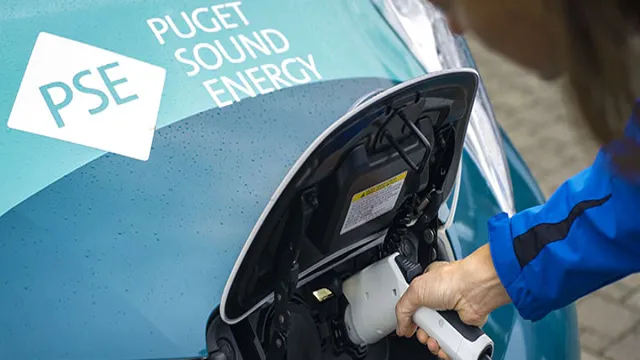
Increased Charging Time
Cold weather can have a significant impact on the charging time of your electric car battery. With temperatures dropping, the battery’s capacity decreases, causing it to charge more slowly than usual. This can be frustrating for electric car owners, especially those with busy schedules who need their vehicles charged quickly.
The effects of cold weather on electric car batteries can also take a toll on the battery life and performance, leading to long-term issues. It’s essential to prepare your vehicle for cold weather conditions, such as parking it in a garage or using a battery warmer, to minimize these effects and ensure your electric car runs smoothly all year long. Nevertheless, electric cars are an environmentally friendly alternative to fossil fuel cars, playing a crucial role in reducing carbon emissions and fighting global warming.
By planning ahead and considering the effects of cold weather, you can still enjoy the many benefits of driving an electric car.
How to Combat Cold Weather Losses
When the temperature drops, the range and performance of electric cars can be affected. This is because cold weather can cause the electric car batteries to lose their efficiency and power. The chemistry inside the batteries performs best at moderate temperatures – usually around 20-25°C.
In colder temperatures, the battery’s chemical reactions slow down, leading to decreased battery capacity and overall range. To combat cold weather losses, it’s recommended to keep the car in a garage or insulated space when possible. Additionally, preheating the car while it’s still plugged in is a good practice to help preserve the battery’s performance.
Some electric cars also have heating systems that can help warm up the battery so that it operates more efficiently in colder weather. Overall, although electric car batteries will be affected by cold weather, there are steps that drivers can take to mitigate the impact and ensure that they can still get where they need to go.
Preheating Your Electric Car Battery
Electric Car Battery Preheating Cold weather can take a significant toll on an electric car’s battery performance and efficiency. To combat this issue, preheating your battery before driving can be beneficial. Preheating the battery allows it to reach its optimal temperature range faster, making it more efficient and improving its overall lifespan.
Some electric cars come with built-in preheating systems that can be activated using a mobile app or remote control, while others require an external preheating device. It is essential to note that preheating can consume some battery power, so it’s best to plan ahead and make sure your car is fully charged before engaging the preheating system. By preheating your electric car battery, you can enjoy better performance and range in cold weather conditions.
Installing a Battery Blanket
Are you struggling with starting your car in the cold winter months? One solution could be to install a battery blanket. A battery blanket wraps around your car battery, providing it with warmth and preventing it from losing power due to cold temperatures. Not only does it make starting your car easier, but it also prolongs the life of your battery.
Plus, it’s easy to install – simply wrap the blanket around the battery and plug it in. So, say goodbye to cold weather losses and hello to a reliable car start every time. Trust us, your car will thank you for it!
Optimizing Your Driving Habits
One of the biggest challenges of driving in cold weather is combating the inevitable losses that come with it. In order to optimize your driving habits and minimize these losses, there are a few strategies that you can implement. One important tactic is to make sure your tires are properly inflated, as colder temperatures can cause tire pressure to drop.
Additionally, avoiding rapid acceleration and braking can help conserve fuel and reduce wear and tear on your vehicle. Another helpful tip is to use the engine’s heating system sparingly, as it can put extra strain on the battery and reduce fuel efficiency. By implementing these simple techniques, you can drive more efficiently and save money on gas during the cold winter months.
Future Developments
Are electric car batteries affected by cold weather? The answer is yes, cold temperatures can reduce the performance and range of electric car batteries. A battery’s ability to store and discharge energy is determined by chemical reactions. In cold weather, these reactions slow down and reduce the battery’s power output.
Additionally, electric car batteries require a certain temperature range to operate safely and efficiently. If the battery is too cold, it can become damaged or even stop working altogether. To combat this, many electric cars are equipped with battery management systems that help regulate temperature and reduce the impact of cold weather on battery performance.
Furthermore, advancements in battery technology are being made to improve cold weather performance. As electric cars become more widespread, it is likely that these developments will continue to improve the performance and reliability of electric car batteries in cold weather conditions.
Advancements in Battery Technology
Battery technology has come a long way in recent years, and the advancements made have opened up new possibilities for the future. One of the most exciting developments on the horizon is the use of solid-state batteries. These types of batteries replace the traditional liquid or gel electrolyte with a solid material, resulting in a higher energy density, faster charging times, and longer lifespans.
This means that solid-state batteries could potentially power electric cars for hundreds of miles on a single charge, and significantly reduce the charging time as well. Another exciting development is the use of lithium-sulfur batteries. These batteries have the potential to store more energy than traditional lithium-ion batteries, making them ideal for applications where space and weight are at a premium.
The use of these and other emerging battery technologies will undoubtedly shape the future of our energy landscape, providing cleaner, more efficient ways to power our lives.
Impact on Cold Weather Performance
When it comes to cold weather performance, there are several factors to consider, including the quality of the materials used and the design of the vehicle. However, with the development of new technologies and materials, there is hope for improved cold weather performance in future vehicles. For example, companies are working to create more efficient engines that can maintain their performance even in low temperatures.
Additionally, there are new materials being developed that can better insulate cars, keeping heat in and cold air out. With these advancements, we can expect to see cars that are more reliable and efficient in even the harshest of winter conditions. As automotive technology continues to evolve, we can be sure that manufacturers will prioritize cold weather performance, ensuring that drivers can stay safe and comfortable no matter what the weather brings.
Conclusion
In conclusion, it turns out that electric car batteries are indeed affected by cold weather, much like our own bodies. Just as we bundle up in layers and seek warmth during the winter months, electric cars require extra attention and care to ensure their batteries stay charged and functioning properly. However, with advancements in battery technology and the continued push towards renewable energy, electric cars may one day conquer even the coldest of climates.
“
FAQs
How does cold weather affect electric car batteries?
Cold weather can cause electric car batteries to temporarily lose charge capacity and take longer to charge.
Is it safe to charge an electric car in cold weather?
Yes, it is safe to charge an electric car in cold weather, but it may take longer than usual due to reduced battery capacity.
Do electric car batteries need to be preheated in cold weather?
Some electric cars have preheating systems to warm up the battery before driving, which can improve efficiency and prolong battery life in cold weather.
Can using a battery warmer improve electric car performance in cold weather?
Yes, using a battery warmer can help improve electric car performance in cold weather by reducing battery degradation and increasing charging efficiency.
